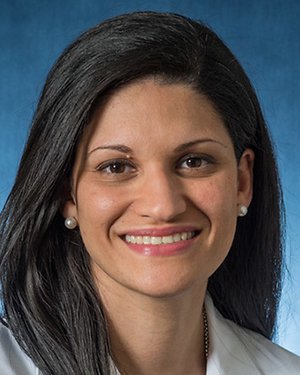Research Lab Results
-
Elizabeth Hunt Lab
Researchers in the Elizabeth Hunt Lab study innovative ways to improve the care quality and clinical outcomes of children who suffer cardiopulmonary arrest. Our work includes implementing rapid-response systems, capturing and analyzing cardiac-arrest data, and redesigning medical devices and simulators. We've introduced novel simulation approaches to education, including data-driven debriefing and the Rapid Cycle Deliberate Practice approach.
Principal Investigator
Department
-
Nicholas Rowan Lab
Dr. Rowan is actively involved in both outcomes and translational research relating to chronic rhinosinusitis and endoscopic skull base surgery. He has a keen interest patient-reported quality of life outcomes as well as those that pertain to smell and taste. Dr. Rowan is also involved in sinus-related clinical trials, pursuing new medical therapies and technological advancements for the treatment of patients with chronic rhinosinusitis.
-
Natasha Chida Lab
The Natasha Chida Lab investigates methods for using education and curriculum development to improve patient outcomes worldwide, primarily by optimizing education of physicians-in-training. Most recently, our team has worked to develop and evaluate an assessment tool for evaluating internal medicine residents’ understanding of tuberculosis diagnostics. Previous research includes a retrospective cohort study on the high proportion of extrapulmonary TB in a low-prevalence setting as well as an analysis of ways to define clinical excellence in adult infectious disease practice.
-
Hanan Aboumatar Lab
Research in the Hanan Aboumatar Lab focuses on advancing patient-centered outcomes through improved patient and family involvement. We also focus on multilevel methods to increase the patient-centered focus of care delivery. Recent research examined the impact of a quality-improvement intervention on patient involvement in primary care and treatment with respect and dignity in intensive care.
-
Maryam Jahromi Lab
The Maryam Jahromi Lab researches infectious diseases such as influenza, tuberculosis, endocarditis, viral hemorrhagic fevers, brucellosis, Clostridium difficile and Crimean-Congo hemorrhagic fever. We are particularly interested in the impact of the influenza vaccine on systemic inflammation. Recent areas of focus include the relationship between influenza vaccination and cardiovascular outcomes, the emergence of Crimean-Congo hemorrhagic fever in Iran, and prospects for vaccines and therapies for Crimean-Congo hemorrhagic fever.
-
Tinsay Woreta
The Woreta Lab does clinical and translational research on Hepatocellular Carcinoma; Liver Transplantation Outcomes; Chronic Viral Hepatitis.
-
Rosalyn Stewart Lab
Research in the Rosalyn Stewart Lab focuses on medical education and curriculum development; ambulatory medicine; community outreach and advocacy; health outcomes; and preventive medicine. Topics of published studies include the administration of vaccinations, care quality of pediatric sickle-cell disease patients and the improvement of transitional care to reduce hospital readmission rates. -
Amy Knight Lab
Research in the Amy Knight Lab focuses on methods by which information technology can improve the quality of health care. We investigate the role computer systems can play in expanding patient-doctor communication, streamlining healthcare tasks for both medical students and practitioners, and establishing a higher standard of care. Our studies have explored the effectiveness of semi-automating daily progress notes for improved documentation, peer assessment of professional performance among hospitalists, ways to enable patient-centered care using information technology and other topics.
-
Nauder Faraday Lab
The Nauder Faraday Lab investigates topics within perioperative genetic and molecular medicine. We explore thrombotic, bleeding and infectious surgical complications. Our goal is to uncover the molecular determinants of outcome in surgical patients, which will enable surgeons to better personalize a patient’s care in the perioperative period. Our team is funded by the National Institutes of Health to research platelet phenotypes, the pharmacogenomics of antiplatelet agents for preventing cardiovascular disease, and the genotypic determinants of aspirin response in high-risk families. -
Allan Gelber Lab
The Allan Gelber Lab conducts research on the clinical epidemiology of rheumatic disorders. Our recent studies have explored topics that include the predicting factors of prevalent and incident gout; cardiovascular disease burden and risk in patients with rheumatoid arthritis; autoantibodies in both primary and secondary SjogrenÕs syndrome; and predictors of outcomes in patients with scleroderma. In addition, we have a long-standing interest in the ways in which racial differences affect disease manifestations in relation to rheumatic disorders.

